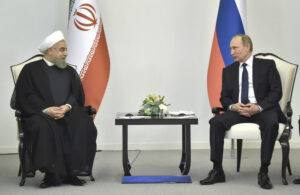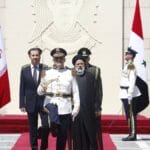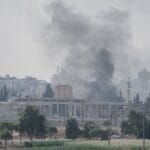
[W]hat Assad can’t or won’t acknowledge is that the future of his regime depends on others in Syria. As has been the political and military reality for months, Russia is in the driving seat. (…) Russia may hold sway in the air, but Iran remains the key military player on the ground. (…)
Iran also consistently goes further than Russia in its private and public support for Assad. In autumn 2015, when it appeared Moscow might accept a settlement in which the regime remained but the president went, senior Iranian officials made clear that Assad’s departure was a red line which could not be crossed. And when the prospect of conquering Aleppo finally arose in 2016, Iran pressed Moscow not to settle for a deal which would leave the opposition in any part of the city. This will go on. Because of its huge investment so far and its stake in Syria as a secure corridor to Lebanon and Hezbollah, Iran may not be willing to tolerate any opposition area in Syria whatsoever. And that means it will almost certainly insist on pushing into Idlib, despite the inevitable financial, military and human cost.“ (Scott: Lucas: „What’s in store for Syria after Aleppo falls? Russia and Iran will decide“)






